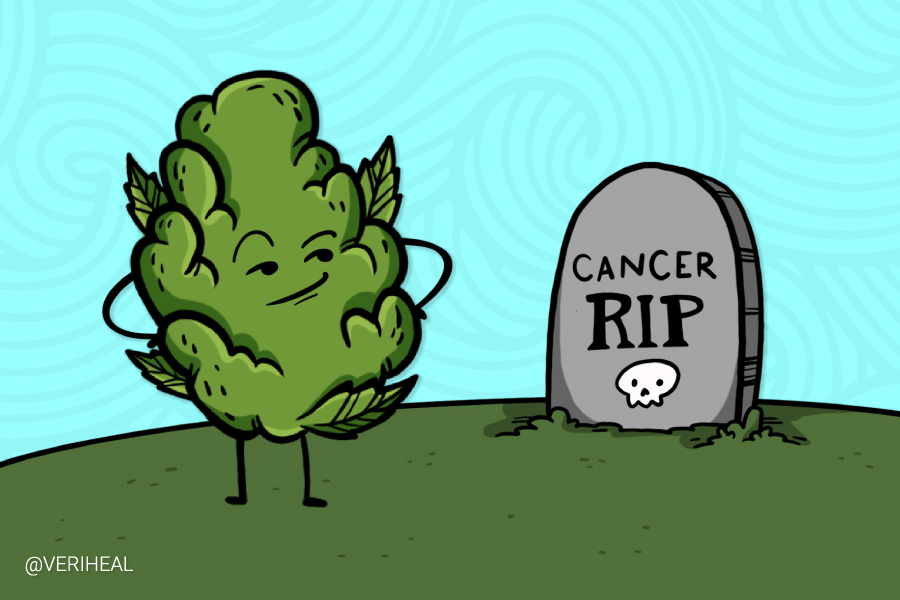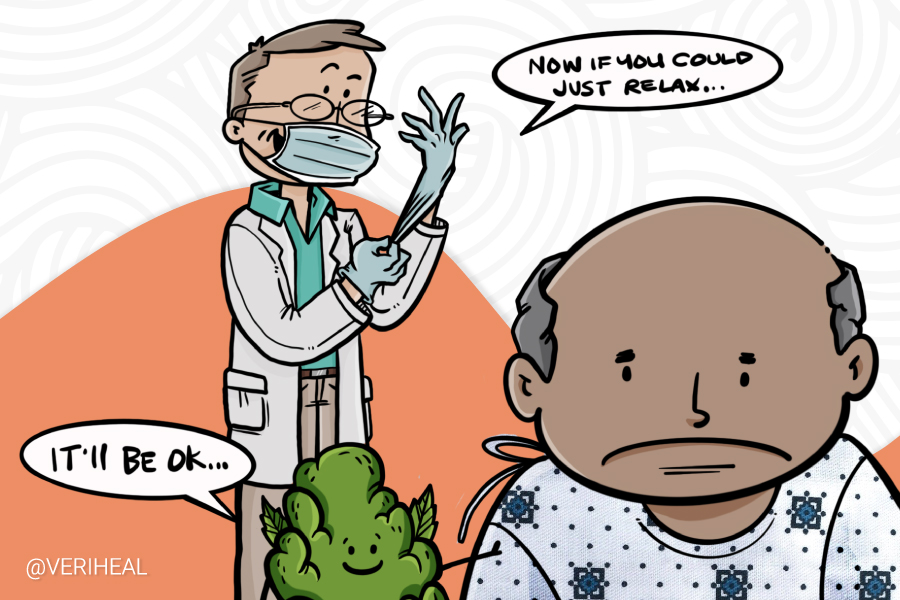Medical Cannabis and Amyloidosis
1. 8 Natural Therapies for Amyloidosis. (2018, August 20). Healthline. https://www.healthline.com/health/amyloidosis/natural-therapies-for-amyloidosis
2. Amyloidosis. (2023, January 19). https://www.hopkinsmedicine.org/health/conditions-and-diseases/amyloidosis
3. Amyloidosis Complications: Kidneys, Blood Pressure, and More. (2018, August 20). Healthline. https://www.healthline.com/health/amyloidosis/complications-of-untreated-amyloidosis
4. Amyloidosis: Definition of Amyloid and Amyloidosis, Classification Systems, Systemic Amyloidoses. (n.d.). Retrieved April 26, 2023, from https://emedicine.medscape.com/article/335414-overview
5. Amyloidosis: Symptoms, Treatment, and More. (2017, June 28). Healthline. https://www.healthline.com/health/amyloidosis
6. Amyloidosis—Diagnosis and treatment—Mayo Clinic. (n.d.). Retrieved April 26, 2023, from https://www.mayoclinic.org/diseases-conditions/amyloidosis/diagnosis-treatment/drc-20353183
7. Amyloidosis—Statistics. (2012, June 25). Cancer.Net. https://www.cancer.net/cancer-types/amyloidosis/statistics
8. Amyloidosis—Symptoms and causes. (n.d.). Mayo Clinic. Retrieved April 26, 2023, from https://www.mayoclinic.org/diseases-conditions/amyloidosis/symptoms-causes/syc-20353178
9. Amyloidosis—Symptoms, Causes, Treatment | NORD. (n.d.). Retrieved April 26, 2023, from https://rarediseases.org/rare-diseases/amyloidosis/
10. Aso, E., Andrés-Benito, P., Carmona, M., Maldonado, R., & Ferrer, I. (2016). Cannabinoid Receptor 2 Participates in Amyloid-β Processing in a Mouse Model of Alzheimer’s Disease but Plays a Minor Role in the Therapeutic Properties of a Cannabis-Based Medicine. Journal of Alzheimer’s Disease, 51(2), 489–500. https://doi.org/10.3233/JAD-150913
11. Atalay, S., Jarocka-Karpowicz, I., & Skrzydlewska, E. (2020). Antioxidative and Anti-Inflammatory Properties of Cannabidiol. Antioxidants, 9(1), Article 1. https://doi.org/10.3390/antiox9010021
12. Bieschke, J. (2013). Natural Compounds May Open New Routes to Treatment of Amyloid Diseases. Neurotherapeutics, 10(3), 429–439. https://doi.org/10.1007/s13311-013-0192-7
13. Bustamante, J. G., & Zaidi, S. R. H. (2023). Amyloidosis. In StatPearls. StatPearls Publishing. http://www.ncbi.nlm.nih.gov/books/NBK470285/
14. Cannabidiol Promotes Amyloid Precursor Protein Ubiquitination and Reduction of Beta Amyloid Expression in SHSY5YAPP+ Cells Through PPARγ Involvement—Scuderi—2014—Phytotherapy Research—Wiley Online Library. (n.d.). Retrieved April 26, 2023, from https://onlinelibrary.wiley.com/doi/abs/10.1002/ptr.5095
15. Cannabinoid Effects on β Amyloid Fibril and Aggregate Formation, Neuronal and Microglial-Activated Neurotoxicity In Vitro | SpringerLink. (n.d.). Retrieved April 26, 2023, from https://link.springer.com/article/10.1007/s10571-013-9984-x
16. Cannabinoids remove plaque-forming Alzheimer’s proteins from brain cells. (n.d.). Salk Institute for Biological Studies. Retrieved April 26, 2023, from https://www.salk.edu/news-release/cannabinoids-remove-plaque-forming-alzheimers-proteins-from-brain-cells/
17. Cortical laminar distribution of β-amyloid deposits in five neurodegenerative disorders. (n.d.). Retrieved April 26, 2023, from https://www.termedia.pl/Cortical-laminar-distribution-of-amyloid-deposits-in-five-neurodegenerative-disorders,20,40216,0,1.html
18. Effects of cannabidiol interactions with Wnt/β-catenin pathway and PPARγ on oxidative stress and neuroinflammation in Alzheimer’s disease | Acta Biochimica et Biophysica Sinica | Oxford Academic. (n.d.). Retrieved April 26, 2023, from https://academic.oup.com/abbs/article/49/10/853/3978657
19. Eggers, C., Fujitani, M., Kato, R., & Smid, S. (2019). Novel cannabis flavonoid, cannflavin A displays both a hormetic and neuroprotective profile against amyloid β-mediated neurotoxicity in PC12 cells: Comparison with geranylated flavonoids, mimulone and diplacone. Biochemical Pharmacology, 169, 113609. https://doi.org/10.1016/j.bcp.2019.08.011
20. Esposito, G., Scuderi, C., Savani, C., Steardo Jr, L., De Filippis, D., Cottone, P., Iuvone, T., Cuomo, V., & Steardo, L. (2007). Cannabidiol in vivo blunts β-amyloid induced neuroinflammation by suppressing IL-1β and iNOS expression. British Journal of Pharmacology, 151(8), 1272–1279. https://doi.org/10.1038/sj.bjp.0707337
22. Force Spectra of a Single CsgA Molecule and Amyloid Nanofibers Assembled from Chimeric Mfp5 and CBD Proteins: Implications for a Nanomaterial Testing Machine | ACS Applied Nano Materials. (n.d.). Retrieved April 26, 2023, from https://pubs.acs.org/doi/abs/10.1021/acsanm.1c02889
23. What Is the Endocannabinoid System? Verywell Health. Retrieved April 26, 2023, from https://www.verywellhealth.com/what-is-the-endocannabinoid-system-4171855
24. Iuvone, T., Esposito, G., Esposito, R., Santamaria, R., Di Rosa, M., & Izzo, A. A. (2004). Neuroprotective effect of cannabidiol, a non-psychoactive component from Cannabis sativa, on β-amyloid-induced toxicity in PC12 cells. Journal of Neurochemistry, 89(1), 134–141. https://doi.org/10.1111/j.1471-4159.2003.02327.x
25. Janatová, A., Doskočil, I., Božik, M., Fraňková, A., Tlustoš, P., & Klouček, P. (2022). The chemical composition of ethanolic extracts from six genotypes of medical cannabis (Cannabis sativa L.) and their selective cytotoxic activity. Chemico-Biological Interactions, 353, 109800. https://doi.org/10.1016/j.cbi.2022.109800
26. Kim, J., Choi, P., Park, Y.-T., Kim, T., Ham, J., & Kim, J.-C. (2023). The Cannabinoids, CBDA and THCA, Rescue Memory Deficits and Reduce Amyloid-Beta and Tau Pathology in an Alzheimer’s Disease-like Mouse Model. International Journal of Molecular Sciences, 24(7), Article 7. https://doi.org/10.3390/ijms24076827
27. Köhler, S., Gargano, M., Matentzoglu, N., Carmody, L. C., Lewis-Smith, D., Vasilevsky, N. A., Danis, D., Balagura, G., Baynam, G., Brower, A. M., Callahan, T. J., Chute, C. G., Est, J. L., Galer, P. D., Ganesan, S., Griese, M., Haimel, M., Pazmandi, J., Hanauer, M., … Robinson, P. N. (2021). The Human Phenotype Ontology in 2021. Nucleic Acids Research, 49(D1), D1207–D1217. https://doi.org/10.1093/nar/gkaa1043
28. Laws III, J. S., Shrestha, S., & Smid, S. D. (2022). Cannabis terpenes display variable protective and anti-aggregatory actions against neurotoxic β amyloid in vitro: Highlighting the protective bioactivity of α-bisabolol in motorneuronal-like NSC-34 cells. NeuroToxicology, 90, 81–87. https://doi.org/10.1016/j.neuro.2022.03.001
29. Lee, I. H., Kim, C.-Y., Kang, S., Ahn, D. J., & Kim, M.-K. (2021). Multiple myeloma-associated light chain amyloidosis involving heart, kidneys, and peripheral nerves: A case report. Medicine: Case Reports and Study Protocols, 2(8), e0128. https://doi.org/10.1097/MD9.0000000000000128
30. Luo, Z., Fitting, S., Robinson, C., Benitez, A., Li, M., Wu, Y., Fu, X., Amato, D., Ning, W., Funderburg, N., Wang, X., Zhou, Z., Yu, X., Wagner, A., Cong, X., Xu, W., Maas, K., Wolf, B. J., Huang, L., … Jiang, W. (2021). Chronic cannabis smoking-enriched oral pathobiont drives behavioral changes, macrophage infiltration, and increases β-amyloid protein production in the brain. EBioMedicine, 74, 103701. https://doi.org/10.1016/j.ebiom.2021.103701
31. Mak, E., Holland, N., Jones, P. S., Savulich, G., Low, A., Malpetti, M., Kaalund, S. S., Passamonti, L., Rittman, T., Romero-Garcia, R., Manavaki, R., Williams, G. B., Hong, Y. T., Fryer, T. D., Aigbirhio, F. I., O’Brien, J. T., & Rowe, J. B. (2021). In vivo coupling of dendritic complexity with presynaptic density in primary tauopathies. Neurobiology of Aging, 101, 187–198. https://doi.org/10.1016/j.neurobiolaging.2021.01.016
32. Martín-Moreno, A. M., Brera, B., Spuch, C., Carro, E., García-García, L., Delgado, M., Pozo, M. A., Innamorato, N. G., Cuadrado, A., & de Ceballos, M. L. (2012). Prolonged oral cannabinoid administration prevents neuroinflammation, lowers β-amyloid levels and improves cognitive performance in Tg APP 2576 mice. Journal of Neuroinflammation, 9(1), 8. https://doi.org/10.1186/1742-2094-9-8
33. Modified amyloid variants in pathological subgroups of β‐amyloidosis—Gerth—2018—Annals of Clinical and Translational Neurology—Wiley Online Library. (n.d.). Retrieved April 26, 2023, from https://onlinelibrary.wiley.com/doi/full/10.1002/acn3.577
34. Patil, N., Chandel, V., Rana, A., Jain, M., & Kaushik, P. (2023). Investigation of Cannabis sativa Phytochemicals as Anti-Alzheimer’s Agents: An In Silico Study. Plants, 12(3), Article 3. https://doi.org/10.3390/plants12030510
35. Raja, A., Ahmadi, S., de Costa, F., Li, N., & Kerman, K. (2020). Attenuation of Oxidative Stress by Cannabinoids and Cannabis Extracts in Differentiated Neuronal Cells. Pharmaceuticals, 13(11), Article 11. https://doi.org/10.3390/ph13110328
36. Ruiz-Valdepeñas, L., Benito, C., Tolón, R. M., Martínez Orgado, J. A., & Romero, J. (2010). The endocannabinoid system and amyloid-related diseases. Experimental Neurology, 224(1), 66–73. https://doi.org/10.1016/j.expneurol.2010.03.024
37. Sengupta, U., & Kayed, R. (2022). Amyloid β, Tau, and α-Synuclein aggregates in the pathogenesis, prognosis, and therapeutics for neurodegenerative diseases. Progress in Neurobiology, 214, 102270. https://doi.org/10.1016/j.pneurobio.2022.102270
38. The Effect of Cannabidiol Coated by Nano-Chitosan on Learning and Memory, Hippocampal CB1 and CB2 Levels, and Amyloid Plaques in an Alzheimer’s Disease Rat Model—Abstract—Neuropsychobiology 2022, Vol. 81, No. 3—Karger Publishers. (n.d.). Retrieved April 26, 2023, from https://www.karger.com/Article/Abstract/519534
39. Wang, Z., Zheng, P., Nagaratnam, N., Solowij, N., & Huang, X.-F. (2023). Parkin Mediates Cannabidiol Prevention of Amyloid-Beta-Induced Senescence in Human Astrocytes. Cannabis and Cannabinoid Research, 8(2), 309–320. https://doi.org/10.1089/can.2022.0186
40. Watt, G., & Karl, T. (2017). In vivo Evidence for Therapeutic Properties of Cannabidiol (CBD) for Alzheimer’s Disease. Frontiers in Pharmacology, 8. https://www.frontiersin.org/articles/10.3389/fphar.2017.00020
- What does the nervous system do? (2018, October 1). Https://Www.Nichd.Nih.Gov/. https://www.nichd.nih.gov/health/topics/neuro/conditioninfo/functions


















